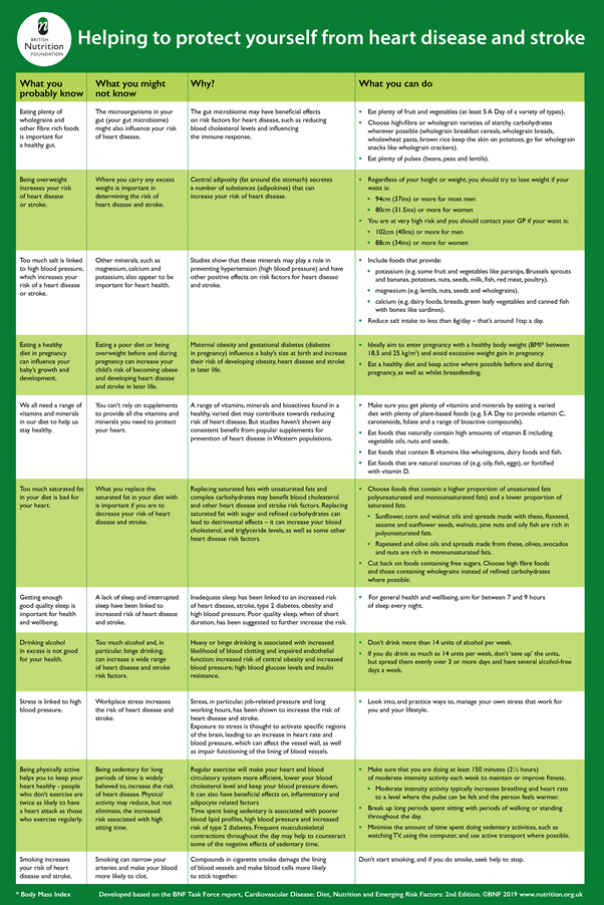
A new Task Force report entitled Cardiovascular Disease: Diet, Nutrition and Emerging Rask Factors: 2nd Edition revealed the evidence for other risk factors, such as being sedentary for long periods, and poor diet in pregnancy.
The findings were presented at a conference for academics and health professionals to launch the Task Force report in London today (27 February).
Professor Keith Frayn Emeritus, professor of human metabolism, at the University of Oxford and Chair of the Task Force, said: “Conventional lifestyle-related risk factors for cardiovascular disease include smoking, raised cholesterol and blood pressure, lack of physical activity, obesity and diabetes.
“However, these ‘classical’ risk factors cannot fully explain differences in cardiovascular disease risk and emerging evidence suggests that other novel risk factors may play an important role.”
In the UK, the death rate from cardiovascular disease (CVD), which includes heart disease and stroke has been falling but it is still one of the leading causes of death.
There are a number of treatments available, which have contributed to reducing mortality, but ill health associated with CVD (morbidity) remains high and could even be rising in older age groups.
Gut health
Scientific research shows that eating plenty of wholegrains and other fibre rich foods is important for a healthy gut, but the report highlights that the fermentation of fibre by our gut bacteria may also influence our risk of heart disease.
Sara Stanner, science director at the BNF and editor of the report said: “As a nation we’re consuming well below the recommended intake for fibre.
“Eating plenty of fruit and vegetables, choosing high-fibre or wholegrain varieties of starchy carbohydrates, and eating plenty of pulses, like beans, peas and lentils, will contribute to fibre intakes and can help to keep your gut healthy and decrease your risk of heart disease.”
Central fat
It’s known that being overweight increases your risk of heart disease and stroke, but where you carry any excess fat is also important in determining the risk of heart disease and stroke. The report explains that people who have excess fat around the stomach are at increased risk because the cells secrete a number of substances that can contribute to risk.
Stanner said: “Regardless of height or BMI, people should try to lose weight if their waist measures more than 94cm (37ins) for men and 80cm (31.5ins) for women.”
Minerals
There is an established link between sodium in salt and risk of high blood pressure but other minerals like calcium, magnesium and potassium may play a role in preventing high blood pressure and have positive effects on other risk factors for heart disease and stroke.
Stanner added: “Eating a varied diet will help to ensure you get all the essential minerals you need; potassium is found in foods like bananas, potatoes and fish, magnesium in lentils and wholegrains and calcium in dairy foods and some green leafy vegetables.”
Sleep
Evidence in the report also suggests that it is not just a lack of sleep but also poor quality and interrupted sleep that may be linked to an increased risk of heart disease, stroke, type 2 diabetes, obesity, and hypertension.
“There is emerging evidence that inadequate sleep is linked to increased risk of cardiovascular disease. For general health, adults should aim for between seven and nine hours sleep a night,” stanner explained.
Workplace stress
The report suggests that exposure to stress activates specific regions of the brain, leading to an increase in heart rate and blood pressure, which can affect blood vessel walls and damage the functioning of the blood vessel lining.
Other risk factors
Other significant risk factors identified by the Task Force report included birthweight (both high and low birthweights are associated with increased risk of heart disease in later life), excessive consumption of alcohol and sedentary behaviour, even if interspersed with physical activity.